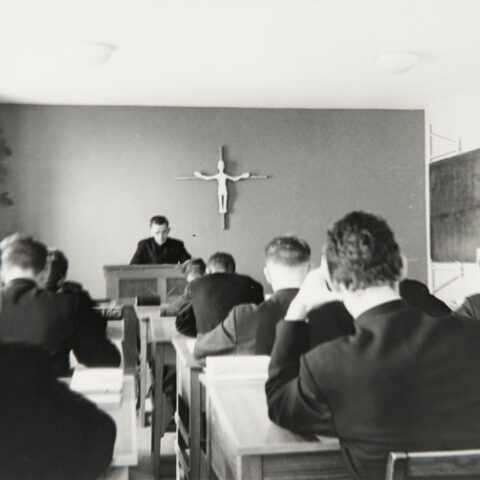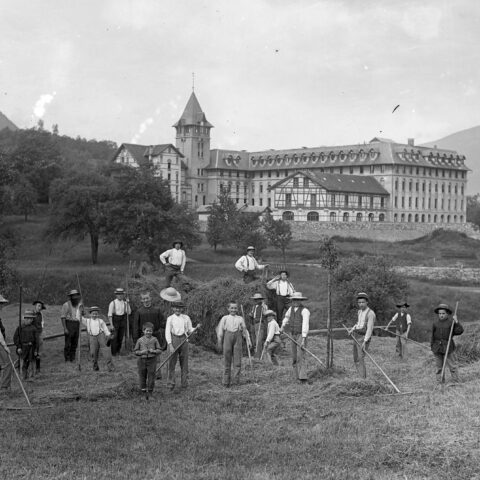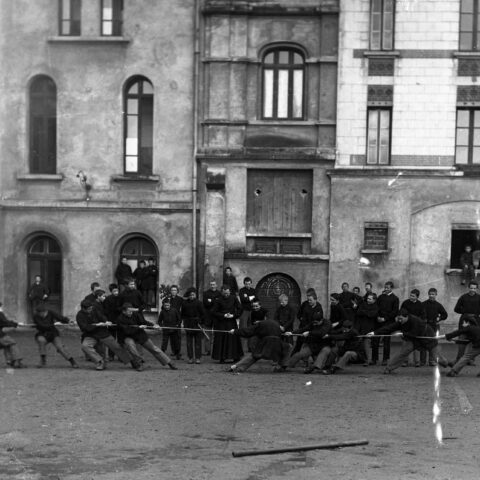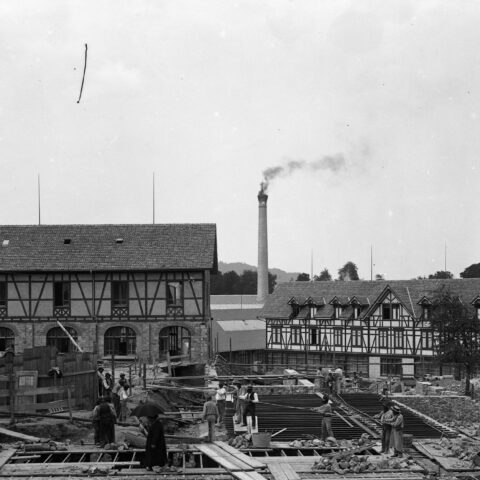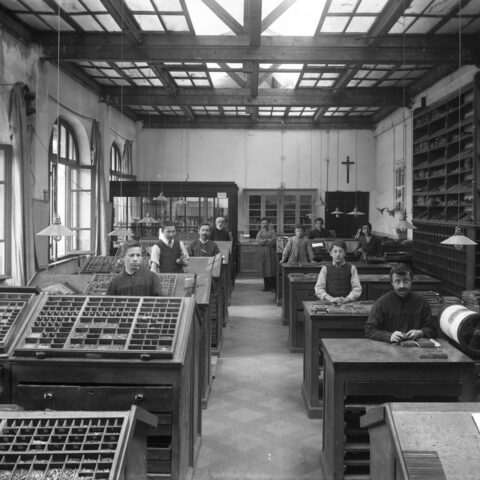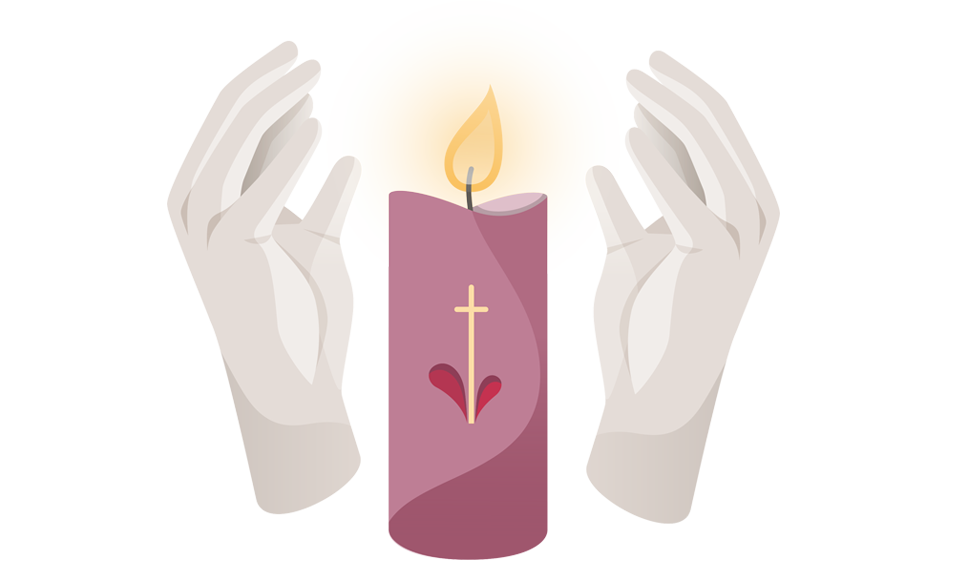The largest group of members of the Bethlehem Mission Society live and work in Switzerland today. In addition to the two locations in Immensee and Fribourg, there are several outposts. Most of the members working there were previously active on other continents.
The beginnings of the Bethlehem Mission Society SMB were not in Immensee in 1895, but in nearby Meggen in the canton of Lucerne. A year later, it moved to its current location in the canton of Schwyz, on a hill between Lake Lucerne and Lake Zug. From there, hundreds of Bethlehem missionaries have travelled to other places in Switzerland and around the world in the SMB’s more than 100-year history.
The mother house in Immensee
About 30 priests and brother missionaries fulfil their missionary engagement in various living and working spheres. They work in administration, the library and sacristy and in many small services necessary for the living together of the community. From here priests undertake pastoral duties in various parishes. In this way they play their part in the missionary awareness of communities.
In the third phase of the members’ lives, their hobbies also come into play, which were often neglected in the demanding missionary work before. Some discover artistic skills, such as painting or photography.
The elderly missionaries, who receive professional care and support after many years of service in Africa, Asia and North and South America, deserve special attention. Their missionary vocation now takes on a special flavour. They share the work, worries and problems of their confreres working abroad in prayer. The missionaries, who are limited by age and illness, see themselves in the role of St Theresa of Lisieux. Their missionary apostolate consists in prayer and bearing their sufferings.
The following picture gallery provides a brief insight into the history of the mother house, including the Gymnasium (grammar school), the training workshops, and the seminary:
The Torry estate in Fribourg
After its first general chapter in 1934, the Bethlehem Mission Society decided to open an “apostolic school” in Fribourg in order to recruit more members in French-speaking Switzerland. To this end, it purchased the “Grand Torry” estate, which was located slightly above the city and included a manor house, a farm and farmland. Four school classes were planned. The pupils were then able to continue their studies at the Gymnasium (grammar school) in Immensee and then at the Schöneck Mission Seminary in Emmetten in the canton of Nidwalden.
The Torry House soon reached its limits
On 20 September 1938, the headmaster of the school, Father August Jenny, had the pleasure of welcoming the first pupils to Torry. The school year ended in the summer of 1939 with six pupils. In autumn 1942, the first three “Torryans” were able to continue their studies in Immensee. Three years later, two of them passed the federal school-leaving examination (Matura) and entered the SMB’s own Schöneck Seminary in Emmetten to complete their novitiate and study philosophy and theology.
Even before the Apostolic School opened in 1938, the Mission Society rebuilt the Torry House so that it could accommodate around twenty pupils. From 1950 onwards, the lack of space gradually began to make itself felt. In 1956, the decision was taken to extend the building. The planned work was entrusted to the Fribourg architects Cuony and Anthonioz and carried out by the building company Piantino.
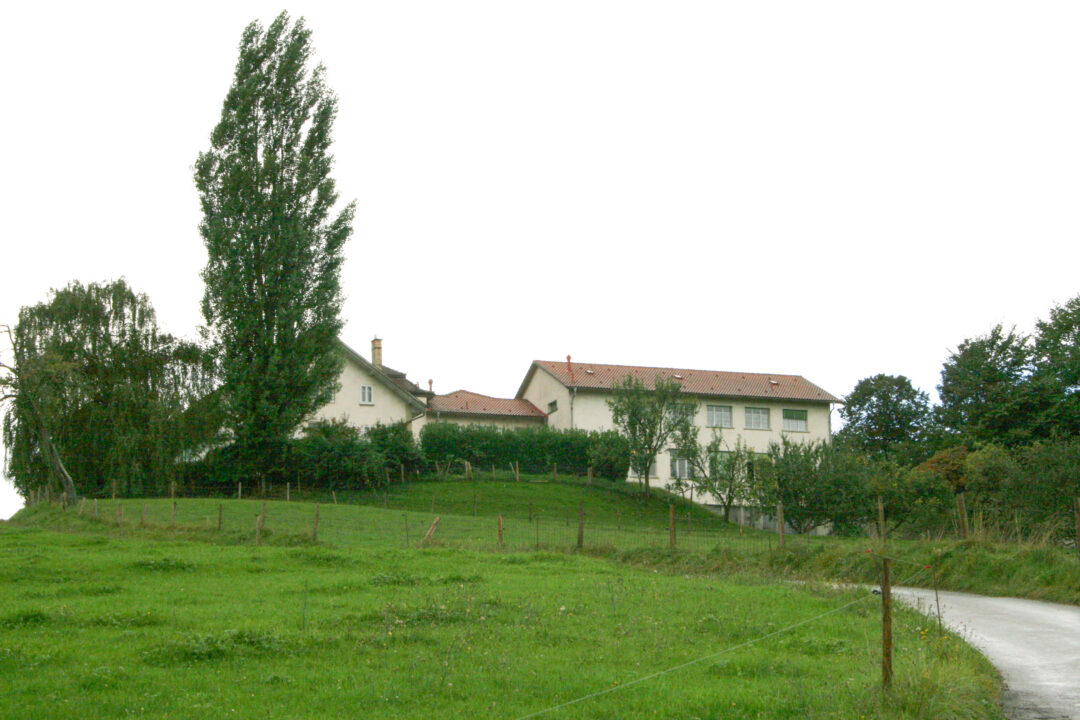
The Torry House of the Bethlehem Mission Society above the city of Fribourg.
Work on the extension began the following July. A new wing with a chapel, a dining hall, various classrooms and a dormitory were built. A playground and a games room were also created. Pupils were able to use the new rooms when school started in September. On 10th December 1956, the main altar of the chapel was consecrated by Bishop François Charrière.
The heyday was only brief
In autumn 1966, there was a significant change: the third and fourth forms were abolished. This left only two classes with the programme of a secondary school. The boarding school continued to exist, but external pupils were now also accepted. This made it possible to release members, which benefited the mission in Haiti.
The school was closed in the spring of 1972 as it became increasingly difficult to recruit students. About 250 pupils attended the school over a period of 34 years and 36 of them continued their education in Immensee. During this time 31members of the SMB, 5 Diocesan priests and 23 lay teachers belonged to the teaching body. Several worked for some years while others only occasionally, or in part time work. About 10 members of the SMB lived as guests in Torry during the time they studied at Freiburg University.
A new purpose for the house
Following the closure of the school, the building was given a new purpose. The editorial office of the magazine “Bethléem” and the office for donators were moved from Immensee to Fribourg.
One wing of the house was rented out to the École de la Foi for rooms for university students, mainly from the Third World. At the same time, the Mission Society began to recruit adult laypersons who could serve in its mission areas. Around twenty people were prepared accordingly and sent overseas.
Since the Bethlehem Mission Immensee (BMI) took over most of these activities, the SMB members living in Torry are largely engaged in parish pastoral work. One of them lectures at Fribourg University.
In May 2013, the management of the house was given over to the Oeuvre St Justin. Most of our guests (a dozen), are foreign priests doing extra studies, supported by the Oeuvre St Justin.
Further information
Outposts
In addition to the two locations in Immensee and Fribourg and the Mission Seminary in Emmetten, which was closed at the end of the 1960s, the Mission Society was and is present with various outposts throughout Switzerland. The confreres at outposts each have their own history, and most of them were previously active on other continents. Their diverse presence helps to maintain the network of relationships in Switzerland.

